After John Mozeliak and Bill DeWitt Jr. fired Mike Shildt, “Mo” said he didn’t have to venture far to find the next manager. Every indication is that the Cardinals plan to keep the job in the family. The Redbird family.
Now, that doesn’t mean management will follow through and do it. But unless this was a blatant head fake to mess with the media, we should expect the Cardinals to rely on connections in choosing a new manager.
The presumptive but unofficial list of candidates: Shildt’s bench coach Oliver Marmol, Cardinals first base coach Stubby Clapp, and longtime Cardinal Skip Schumaker, the bench coach for the Padres. Another intriguing name is the highly respected retired Cardinal left fielder Matt Holliday. And former Cardinal Carlos Beltran has been mentioned — based on management’s admiration of him during his two seasons in St. Louis. But I don’t know how to gauge the team’s interest in Beltran, if any. And I don’t know if Beltran has a yearning to manage in St. Louis.
First let’s talk about how the manager’s job fits in today’s organizational setup. I’ll forward a quick breakdown offered by Tom Verducci, the excellent baseball writer and analyst for Sports Illustrated, MLB Network and Fox Sports:
1–Force of personality: a catch-all phrase for the ability to connect and communicate with young players and to represent the team’s image and brand on a daily basis in front of the media.
2–Fluency in analytics: the belief in data-based decision-making deep enough to serve as an efficient conduit between the front office and the players.
The age of the king-of-the-universe manager has receded into history. As Toronto Blue Jays president Mark Shapiro told The Athletic: “This is partly the evolution of the game, but also partly a reaction to competitors. The industry is increasingly being run by really bright people and they’re coming in with higher and higher requirements, and you’re seeing that in things like what the managers are being asked to do.”
Over the last 10 years or so, MLB teams have poured millions of dollars into the funding of expanded analytics staffs and new technologies. They’ve set up a more refined and advanced scouting system.
The manager must be a comfortable match for the archetype. The manager must be able to synthesize the reams of information being passed down from the front office. The manager must get his players to buy in. And that means conversations — lots of conversations. And managers say it is vital to communicate with every individual player each day.
If front offices demand a different kind of leader in the manager’s office, their reasons are understandable. Why shouldn’t teams do everything possible to maximize the value of the club payroll — but also receive a winning return on their vast investment in the new-age analytics model? Pushing all of that aside would be incredibly stupid.
Older, more experienced managers are more resistant to change. They want autonomy. They want to be in charge. They want to run the show without front-office people hovering, sticking their noses in, offering suggestions.
Sorry, those days are largely over.
In the late 1980s and early ‘90s, the roll call of big-dog managers included Sparky Anderson, Bobby Cox, Whitey Herzog, Tony La Russa, Tommy Lasorda, Davey Johnson, Cito Gaston, Jim Leyland, Jack McKeon, Joe Torre, Frank Robinson, Felipe Alou, Dallas Green, Roger Craig, Jim Fregosi and Bruce Bochy. Well, at least La Russa is back at it again. But he’s more pliable in his dealings with the White Sox front office.
Today, the job description for managers is … different.
As the retired Bochy told Jayson Stark of The Athletic back in 2019: “The game has changed. It’s driven a lot by the front office and by all the information that’s given to the manager. The manager — he’s not the one who’s driving the bus as much as he used to be.”
Bochy, 66, didn’t blast the new way.
“I totally understand that,” Bochy said. “You want to hire somebody who is all in on collaboration and will listen to your ideas, and I get that. Why wouldn’t you? You always had collaboration (before.) That’s always been there. But now you’re looking at daily collaboration with a lot of people. Your baseball analysts, general manager, president — with ideas and lineups, how to use your pitching, your starter and your relievers. So no question the game has changed. And it’s a different job.”
When Nationals GM Mike Rizzo hired Dave Martinez to manage the club in 2017, he expressed enthusiasm for finding someone “who is progressive, someone who can connect and communicate well with our players, and someone who embraces the analytical side of the game.”
Martinez had never managed in the big leagues until Washington gave him the opportunity. The Nationals won the World Series in 2019.
The theme permeates through major-league front offices. When Dave Dombrowski — then president of the Red Sox — hired Alex Cora to manage the team before the 2017 season, he praised Cora’s “full appreciation for the use of analytical information in today’s game, and his ability to communicate and relate to both young players and veterans is a plus.”
Cora has thrived as Boston’s manager, leading the Red Sox to the World Series title in 2018. The Red Sox — currently battling the Astros in the ALCS — have a chance to win another World Series this year.
These hires fit a trend. Before the 2012 season through the planning stage for the 2021 season, MLB teams hired 37 managers that entered the job with no managerial experience at the big-league level. Some had no managerial background in any professional setting. Others were hired with scant experience.
The list of 37 no-experience, first-time MLB managers includes Cora, Martinez, Craig Counsell, Kevin Cash, Dave Roberts, Brian Snitker, Shildt, Aaron Boone, Gabe Kapler, David Bell, Carlos Montoyo, David Ross and Mike Matheny.
“I think that’s one of the reasons that you’re seeing some younger managers — that maybe some of the older school guys were reluctant to adapt to some of the analytics,” Oakland A’s manager Bob Melvin told Bay Area media. “And now, I think maybe some of the organizations are bringing in some younger guys that they can (mold) along those lines. The job now is looked at as you’ve got to have good relationships with the players.”
I know I’ve been harping on this, so please forgive me for doing it again.
As the Cardinals go about the business of identifying the right manager for the job, it’s important to understand the basic realities here. And I’ll make it quick this time.
1) The manager’s job has changed. Radically so. And your expectations should be adjusted accordingly. And this is coming from a guy who loves baseball — and who has been greatly influenced by having the privilege of covering the likes of Earl Weaver, Whitey Herzog, Red Schoendienst, Joe Torre and Tony La Russa. It’s a new era. Maybe teams will slowly reverse and go back to the old-world paradigm, but I doubt it. When La Russa comes out of retirement to manage the White Sox and hires a coach to be in the dugout in the role of analytics coordinator — well, what the heck does that say?
2) The Cardinals can be criticized for other things, but it’s ludicrous to demonize the front office for wanting to get up to speed on the new-model approach that’s being used by the most successful teams in the majors. Unless, of course, you’d like to see them just buck all of the trends, appease the manager, and be less successful. Or we could just stop watching actual baseball, play Strat-O-Matic and choose a season to replay. I would go with the 1967 American League pennant race.
3) The gentlemen that are in the running for the St. Louis managing job are comfortable in the new-way baseball world. Some may be more enthusiastic than others, and that could influence the Mozeliak-DeWitt decision.
I’m not entirely sure about Matt Holliday’s view of analytics and how they should be utilized — and to what extent. But I think the world of Holliday.
I was listening to a podcast — Table 40 — that Matt and his wife Leslee do together on a regular basis. A couple of months ago, they hosted Oliver and Amber Marmol and had a terrific conversation. The Hollidays and the Marmols described each other as best friends. Holliday is very close to Schumkaker and current Cardinals such as Adam Wainwright, Yadier Molina and Nolan Arenado. Holliday respects Beltran and considered him to be a great teammate. And I’m sure Holliday has positive feelings about Stubby Clapp as well.
Clapp did a fantastic job as a manager in the Cardinals’ minor-league system and impressed his players and the Cards front office with his sharpness in baseball strategy. He’s worthy of this job. Heck, they all are.
I point this out for a reason. I’m not endorsing anyone for the job — not that it matters, anyway. But no matter where Mozeliak-DeWitt end up with this search, these candidates are familiar with each other, like each other, and could work together in some form — though I offer no specific plan here. That’s not plausible, because we can’t assume that all of these folks will be hired in some capacity.
I just know that they are familiar with the way of the Cardinal, and cherish franchise history and tradition. They know and love the fans and understand the special nature of this job. That’s a head start.
It doesn’t mean that so-called “outside” candidates should be precluded. A fresh outlook can be helpful, absolutely. And Schumaker, for one, could give you some of that. He undoubtedly understands all things Cardinal — including things that the Cardinals aren’t doing or could be doing better. Schumaker is an outstanding candidate.
These candidates also know Mozeliak quite well, and that will be a crucial aspect of this job. The candidates surely would be made aware of where the Cardinals want to go with ideas to best maximize talent and using analytics as a strategic tool to forge an advantage.
One related question: can friends challenge each other?
Yes, for sure. But there’s no need to be confrontational or hysterical about it. There’s no need to pick fights with the bosses, and create friction that leads to trouble instead of favorable results. No need to berate a coach or go cold on a player who disagree with you. And good grief, don’t overplay your hand, just because you’ve managed well for a few seasons — and suddenly believe you’re the second coming of Billy Southworth or something.
Listening to Table 40, I was struck by something Marmol said when Holliday asked about his favorite part of being a bench coach.
“I enjoy having the tough conversations,” Marmol said. “And the more you have them, the more comfortable you become with them. I enjoy being able to have a tough conversation with a staff member or a player — and then in a week or two, seeing it no longer be an issue. And seeing them grow from whatever it is we talked about.
“That’s probably my favorite part of the job. Most would say ‘I hate having those conversations,’ when I enjoy it. Because you get to see the fruit of it in a week or two, a month — whatever the case may be.”
I really like that. Here’s why: the Cardinals or any other organization can be driven by analytics, but it still comes down to human interaction and effective communication. The people that work with each other have to know how to get the best from each other. And also understand that the front office isn’t the enemy, just because you, as a manager, can’t always get what you want. But if the human interaction is there, and it is honest and genuine, then you have a much better chance of making everything work. Including the damn analytics.
Thanks for reading.
I appreciate you.
–Bernie
Bernie invites you to listen to his opinionated sports-talk show on 590-AM The Fan, KFNS. It airs Monday through Thursday from 3-6 p.m. and Friday from 4-6 p.m. You can listen by streaming online or by downloading the “Bernie Show” podcast at 590thefan.com — the 590 app works great and is available in your preferred app store.
The weekly “Seeing Red” podcast with Bernie and Will Leitch is available at 590thefan.com
Follow Bernie on Twitter @miklasz
* All stats used here are sourced from FanGraphs, Baseball Reference, Stathead, Bill James Online, Fielding Bible, Baseball Savant and Brooks Baseball Net unless otherwise noted.
For the last 36 years Bernie Miklasz has entertained, enlightened, and connected with generations of St. Louis sports fans.
While best known for his voice as the lead sports columnist at the Post-Dispatch for 26 years, Bernie has also written for The Athletic, Dallas Morning News and Baltimore News American. A 2023 inductee into the Missouri Sports Hall of Fame, Bernie has hosted radio shows in St. Louis, Dallas, Baltimore and Washington D.C.
Bernie, his wife Kirsten and their cats reside in the Skinker-DeBaliviere neighborhood of St. Louis.



